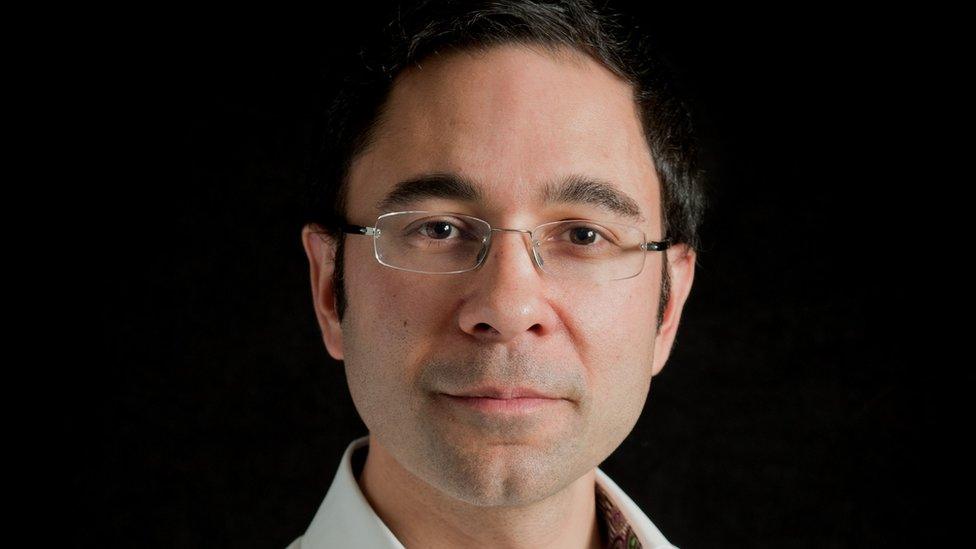ґуПуґ«ГЅ Asian Network editor on trial over abuse victim naming
- Published

Arif Ansari checked his reporter's script before it was broadcast, the court heard
ґуПуґ«ГЅ Asian Network's head of news has gone on trial over the naming of a victim of sexual abuse in a live radio broadcast, a charge he denies.
Victims of sexual offences are given lifetime anonymity by law.
The reporter who used the victim's name said he thought it was a pseudonym - and the charge was brought against Arif Ansari, in his capacity as editor.
The woman was listening to the news when her name was read out and went into "full meltdown", the court heard.
In a witness statement, the woman - a victim of the Rotherham sex abuse scandal - said she was "panicking and crying".
She said she had found the process of giving evidence in the sex abuse trial at Sheffield Crown Court difficult and added: "To then have my name given out as a victim of rape on a ґуПуґ«ГЅ radio station was unbelievable and made me feel sick".
'First time in court'
Sheffield Magistrates' Court was told that Mr Ansari had the role of checking and approving content for broadcast on 6 February last year.
Earlier that day, reporter Rickin Majithia had been in court to hear evidence in a trial linked to the Rotherham sex abuse scandal when a victim's real name was used.
Giving evidence in the trial of Mr Ansari, Mr Majithia explained how the woman gave evidence in court from behind a screen and he wrongly assumed that when her forename was used in court, it was a pseudonym.
The reporter said that he had a number of previous dealings with the woman as he investigated the Rotherham abuse scandal and had become confused, thinking that the name he had always called her was her real one, when it was not.
He added that he had not done any court reporting before the incident and had never even sat in a crown court before to watch a case.
The prosecution said this was significant because Mr Ansari knew that was the situation - and say the charge was brought against him as he had editorial responsibility for the output that was broadcast that day.
On the day of the broadcast, Mr Majithia sent Mr Ansari his script for approval at about 16:35 GMT, and it was broadcast live at 17:00, the court heard.
Mr Ansari did not query the name of the victim before approving the script, nor was the script checked by ґуПуґ«ГЅ lawyers.
Immediately after the broadcast, Mr Majithia was alerted to the mistake, and it was not repeated.
The court heard that, after mistakenly broadcasting her real name he wrote an email to the witness, saying: "I made a human error. It was a moment of confusion I will regret forever."
But the email was not sent due to advice from his superiors, the court heard.
Lifelong protection for victims
The prosecution said it accepted Mr Ansari did not know or suspect the victim's real name was in the script but said he had good reason to suspect its use might be wrong because Mr Majithia was inexperienced.
Prosecutors also described Mr Majithia as "very driven and a bit of a loose cannon", who had produced a "very poor" broadcast on the case earlier in the day.
Mr Ansari is charged with breaching the , which entitles all complainants of sexual offences to lifelong anonymity.
From the moment a complaint of sexual abuse is made, all publishers and broadcasters are banned from naming the complainant unless they choose to waive their anonymity or a court orders otherwise.
It is the first time a ґуПуґ«ГЅ editor has been charged under this Act.
The trial, which is expected to last two days, continues.